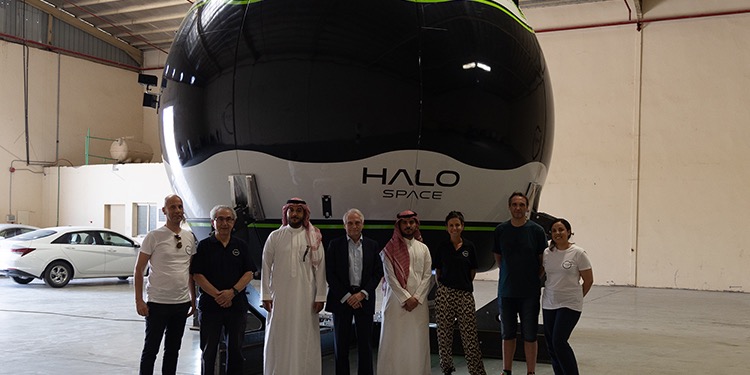
HALO Space, a Spanish startup focused on near-space tourism, is preparing to expand its testing and assembly operations to Saudi Arabia. The company plans to conduct a series of test flights for its Aurora capsule, a stratospheric balloon system designed to carry passengers to the edge of space.
This move aligns with Saudi Arabia’s strategic objectives to become a global leader in aerospace as part of the Vision 2030 initiative. HALO chose the country due to its ideal testing environment, which includes clear skies and ample airspace.
Saudi Arabia’s Communications, Space, and Technology Commission has played a key role in supporting HALO Space’s endeavors. The upcoming full-scale, uncrewed test flight of the Aurora capsule is scheduled for late 2024 and aims to reach altitudes of up to 20 miles (30 kilometers). This flight is expected to be critical for validating the capsule’s systems and safety mechanisms before future commercial flights are planned.
Carlos Mira, CEO of HALO Space, said the decision to establish testing and assembly facilities in Saudi Arabia reflects the country’s favorable business climate. Saudi Arabia’s support for space-related activities has made it an attractive location for HALO Space to further its near-space tourism program.
Saudi Arabia’s involvement in HALO Space’s project aligns with the country’s broader ambitions to expand its role in the aerospace sector. Officials within the country have emphasized their commitment to supporting technological innovation and attracting global space ventures.

The Aurora capsule is designed to lift passengers to near-space altitudes using a helium balloon, offering a zero-emission journey to view the curvature of the Earth. The full journey from takeoff, ascent, cruise, descent, and landing is expected to take about six hours.
HALO Space plans to offer commercial near-space flights starting in 2026, with ticket prices thought to be around $164,000 (150,000 euros). The company aims to provide these flights from multiple global bases, including Saudi Arabia, the United States, Spain, and Australia with hopes to fly as many as 10,000 passengers by 2030.
FTC: We use income earning auto affiliate links. More.

Comments